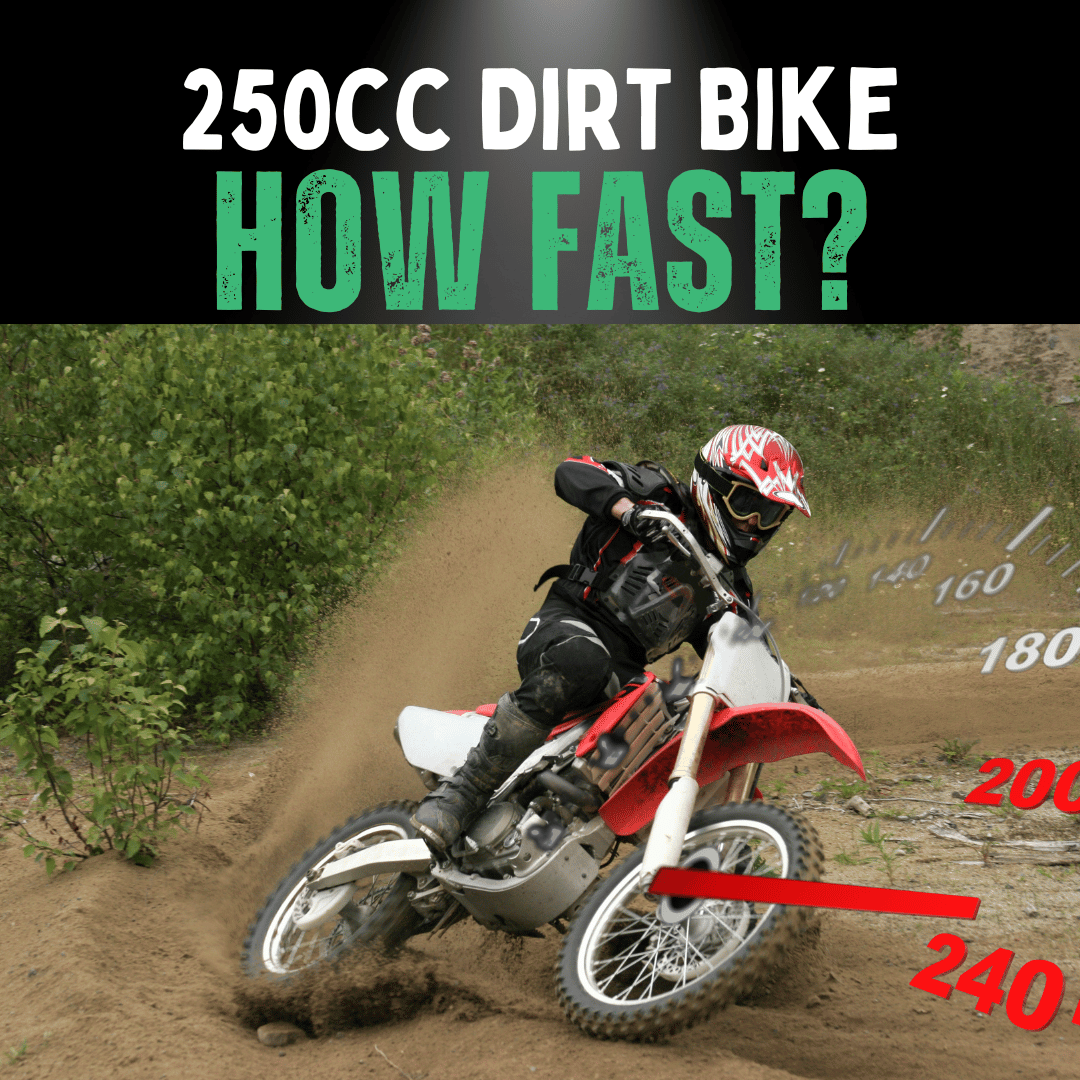
Updated: 15.4.25
Ever watched a dirt bike blaze across rugged trails and thought—how fast can that thing go?
If you're eyeing a 250cc dirt bike or just curious about its speed, you're in the right place.
This guide dives deep into what makes a 250cc dirt bike tick—from engine types and performance ranges to what affects top speed and how to safely test those limits.
How Fast Does a 250cc Dirt Bike Go?
A 250cc dirt bike typically hits speeds between 55 to 85 mph. Some models, like the Yamaha WR250F in racing mode, can top out at 85 mph or more—making them one of the fastest in their class.
Engine Types: 2-Stroke vs. 4-Stroke
One of the biggest factors affecting your bike's speed is the engine type.
- 2-Stroke: Lightweight and quick to accelerate. These are known for bursts of speed and high RPMs, often reaching 70–85 mph.
- 4-Stroke: Heavier but smoother. More torque and control, with top speeds between 55–70 mph.
2 Stroke vs 4 Stroke Dirt Bike – Which One Is Right for You?
Engine Size and Power Output
"CC" stands for cubic centimeters—the engine's displacement. A 250cc engine offers a great middle-ground: enough power to satisfy thrill-seekers, yet manageable for intermediate riders.
More cc generally means more power, which translates into higher top speed—especially on flat or downhill terrain.
Understanding Motorcycle CC: What Does It Mean?
Maintenance Tips to Maximise Speed
- Air Filter: Keep it clean. Clogged filters reduce oxygen flow and choke your power.
- Tyre Pressure: Proper inflation reduces drag and improves traction.
- Oil Changes: Clean oil keeps internal components smooth, preventing power loss.
- Brakes: Confident braking helps you push harder without fear.
Other Factors That Influence Speed
- Terrain: Smooth dirt = faster. Rocky hills? Not so much.
- Rider Weight: Heavier riders will slightly reduce overall top speed.
- Skill Level: An experienced rider can squeeze out more performance, even on tricky trails.
Safe Ways to Test Your Top-Speed
- Choose a Closed Track: Avoid public roads or busy trails.
- Ride Solo: Fewer riders = fewer distractions.
- Gear Up: Always wear a helmet, gloves, and body armour.
- Check Weather: Dry, clear days offer optimal traction and visibility.
Speed Comparison by Engine Type
- 2-Stroke: 70–85 mph (Yamaha YZ250, KTM 250SX)
- 4-Stroke: 55–70 mph (Honda CRF250R, Yamaha WR250F)
Some high-performance bikes can exceed these figures, but these ranges cover most standard models.
Legal Speed Considerations
On trails and in parks, observe posted speed limits. On public roads (if your dirt bike is street-legal), comply with local laws.
Not all 250cc dirt bikes are legal for street use. Make sure yours is compliant before riding on-road.
Picking the Right 250cc Dirt Bike
When shopping for a bike, consider:
- Engine Type: 2-stroke for speed, 4-stroke for control.
- Your Experience: Beginners may prefer a 4-stroke for its manageable power curve.
- Where You’ll Ride: Open tracks need top-end speed; tight trails favour torque and agility.
Safety & Skill Matter Most
A fast bike is only as safe as the person riding it. Learn throttle control, braking techniques, and body positioning before maxing out your speed.
Always wear full safety gear. It’s not optional—it’s essential.
Conclusion
A 250cc dirt bike is a thrilling, powerful machine with top speeds ranging from 55 to 85 mph.
But speed isn’t everything. Maintenance, terrain, rider weight, and skill all play a role. The key is riding responsibly and making the most of what your bike can offer—safely.
Whether you're a weekend trail warrior or a future motocross pro, know your limits, respect your machine, and enjoy the ride!





Share:
How Often Should You Change A Motorcycle Spark Plug?
How to Install Dirt Bike Grips - Only 4 Steps